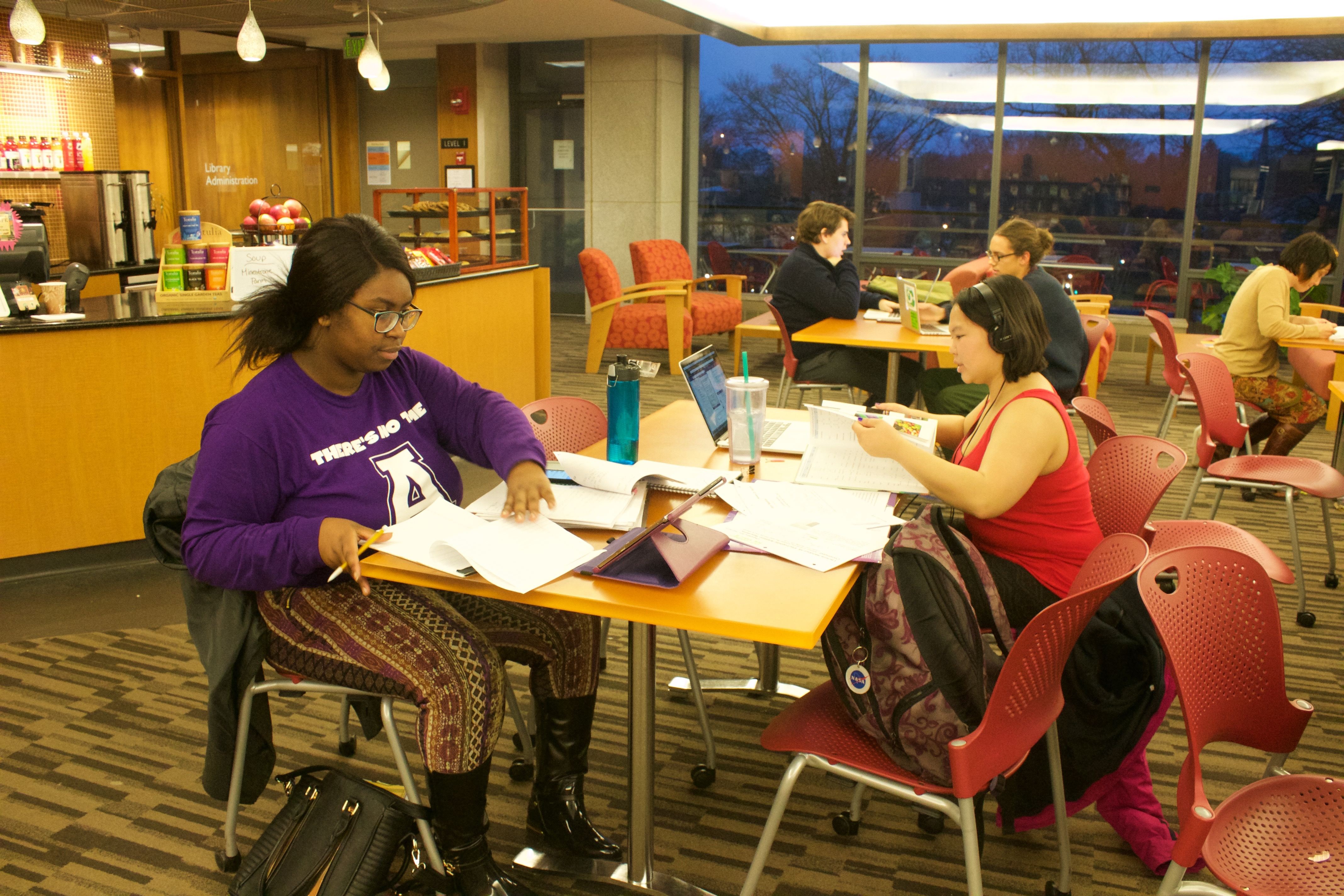

Faculty and students gathered in Johnson Chapel for a forum on students’ academic workload on Nov. 17. The forum was structured as an open mic event, and students took turns on stage discussing their experiences with workload.
One issue that students raised at the forum was a perceived lack of flexibility in certain academic requirements. For example, some students criticized Amherst’s credit system, which requires that seniors have 32 credits in order to graduate, because it forces students to spend an extra semester in school if they fail one course. Asa Goodwillie ’16 said that flexibility is necessary for students with personal difficulties, including mental health issues, to engage in academics.
Students also expressed anxiety about deadlines for academic work. They said that deadlines can frequently overlap among classes. Students also said that while some professors are often willing to offer extensions on papers and other assignments, others have a no-extension policy or give extensions infrequently.
“I suggested that professors treat us like adult learners — that is to say, they stop assigning nightly reading responses that check our comprehension or give us inflexible deadlines for papers that feel arbitrary,” Gaby Mayer ’16, who spoke at the forum, said in an interview. “Instead of having me work furiously between classes, I’d rather be trusted to get the work done whenever I could.”
Others said Amherst’s academic workload can prevent students from engaging in extracurriculars and make it difficult to deal with personal emergencies.
“My own view is that Amherst has relatively rigid policies around issues such as pass/fail options, course withdrawal options, credit hours assigned, et cetera,” Dean of the Faculty Catherine Epstein wrote in an email following the forum.
Bonnie Drake ’17 said the workload can prevent students from thinking deeply about their coursework.
“I have cried reading legal theory before because it is so beautiful,” Drake said in an interview. “I care deeply about learning. But I can’t immerse myself in learning when I have a thousand pages of reading to do in a weekend and papers to write. Oftentimes the sheer quantity of pages assigned means that we leave huge swaths of texts untouched by class discussion.”
Drake also suggested that assigning fewer texts could help to alleviate the financial burden of buying books for some students.
Some students said that large amounts of work tends to make students competitive rather than collaborative. They also said that the Latin honors system tends to encourage this competitiveness.
“Oftentimes, our workload prevents us from talking to each other about the cool stuff we are studying,” Mayer said. “In fact, it was only when I stepped away from campus this fall for grad school interviews that I found myself able to revel in the awesome Islamic manuscript course that I’m currently taking, and the really interesting essays I was writing for that course. So there’s a mismatch there, because the hard work we do only really makes us feel good if we can share it with our peers.”
Konso Mbakire ’18 spoke about the experience she had with a peer tutor. She said that the availability of peer tutors needs to be better advertised, and that the Moss Quantitative Center should be expanded to allow faculty members to offer assistance in specific courses.
President Biddy Martin presented the idea for the forum at a faculty meeting on Nov. 3. She said student members of the Committee on Educational Policy and members of the Multicultural Resource Center had met with her separately and discussed the student workload. Dean of New Students Rick López ’93 said at the meeting that first-years often have trouble figuring out their priorities, and that college life can cause new mental health issues or amplify existing ones. “We’re trying to move them from consumers of knowledge to producers of knowledge, and for some of them that transition is hard, and it’s bruising to them,” López said.
According to Epstein, the Curriculum Committee, which was formed this year to advise the Committee on Educational Policy, is currently discussing the issues that were raised at the forum.
“I thought that the meeting was productive, and I’d like to thank all the students for participating, and to thank all the faculty for listening,” Epstein said.